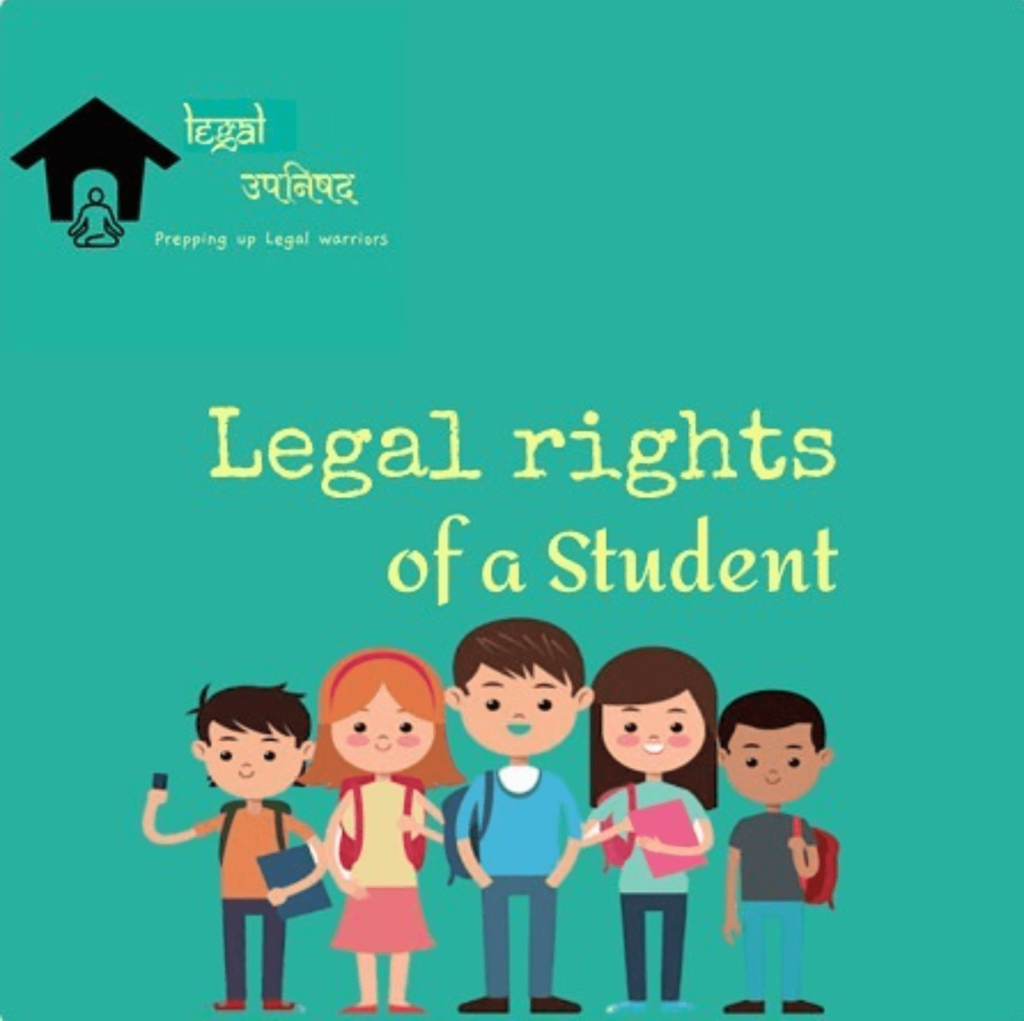Introduction
This article talks about all the legal rights of students in India. Students are the investment done by a country for getting higher returns in the future. They are important as they seem to be but are sometimes exploited and denied their rights. So, it is very important for students to know their legal rights. Although there is no term defined as ‘student rights’ anywhere in Indian Law. The Constitution of India contains Legal Rights of Students in India that every student must be aware of:
Legal Rights of Students in India


1- Right to equality (Article 14)
Candidates appearing for the entrance examinations should be treated equally and should have an equal opportunity to be selected in the admission process. There should be no discrimination against any student based on caste, creed, sex, personal beliefs, or religion.
2- Right to freedom of speech and expression (Article 19 (2))
A student can freely express his/her views on any topic without any fear, but you can’t misuse this right to abuse your Institution or as an excuse to defame your college.
Note – Private Universities can terminate any student for the reason they want.
3- Right to Information (Article19 (1) (a))
The right to information is covered under the right to freedom of speech and expression. It is granted under article 19 of the Indian Constitution. The right to information basically implies that no teacher or any authoritative figure can deny any information to the student if they know it.
FAQ – Are there any exceptions to this right?
The right to information is subject to exceptions in the case of national secrets. But, they are irrelevant in the case of a student.
4- Right to Life and personal liberty (Article 21)
It implies that “No person shall be deprived of his life and personal liberty except according to the procedure established by law”. It includes under its purview the right to live with human dignity. From a student’s point of view; the right to life states that every student should be able to get an education in an environment of freedom and dignity that is free from fear. Teachers are not allowed to beat or insult students in any way. It was held by Delhi High Court in 1973 that corporal punishments for students should be banned.
Note – Corporal punishments can be given to students only if he/she misbehaves with the teacher or engage in physical violence on the school premises. In this case, also the punishment can’t be a harsh one; and the student should be above 14 years of age.
5- Right to education (Article 21A)
The right to education is guaranteed under Article 21A of the Constitution. Even a separate act has been enacted to exercise this right i.e. Right of Children to free and compulsory education Act, 2009. Every child in India is entitled to education up to the 10th class in any government-aided school. This right is aimed at providing mandatory elementary education to children 6-14 years of age.
Note – It is mandatory for all private schools to enroll 25% of children for free education from the weaker sections and backward groups in their neighborhoods. In case, the Induction Class is Class 1, 25% of children will be enrolled in it every year, but if the Induction is Nursery or KG, then a 25% quota is also applicable.

